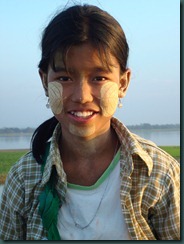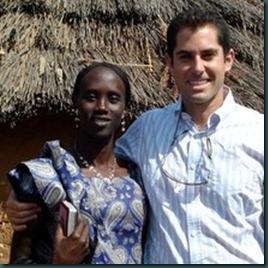Thoughts about what it means to pursue a life that includes faith, justice, peace, integrity, and sustainability.
Sunday, December 30, 2012
Noblesse Oblige, Boxing, and the Limits of Charity
Thursday, December 27, 2012
Demand a Plan!
Sunday, December 23, 2012
Is He Really the Prince of Peace, or Just a Figurehead?
For a child will be born to us, a son will be given to us; And the government will rest on His shoulders; And His name will be called Wonderful Counselor, Mighty God,Eternal Father, Prince of Peace.
How ironic that just as we celebrate the coming of the Prince of Peace, in my own culture just so recently there has been yet another mass killing by a deranged man who had access to firearms. How ironic that some of the same people who claim to believe in the teachings of the Prince of Peace will still resist efforts to disarm killers and reduce their opportunity to harm others by regulating access to handguns, automatic weapons and high capacity ammunition. How ironic that some people who claim to believe in peace, advocate violence themselves?
Friday, December 14, 2012
The Rev. Mr. Fred Rogers
"When I was a boy and I would see scary things in the news, my mother would say to me, 'Look for the helpers. You will always find people who are helping.' To this day, especially in times of 'disaster,' I remember my mother’s words, and I am always comforted by realizing that there are still so many helpers - so many caring people in this world." ~ Mister Rogers
Friday, December 7, 2012
Inheritance Tax in the USA
Thursday, December 6, 2012
TIPS FOR DEALING WITH FAMILY CONFLICT DURING THE HOLIDAYS
Does the thought of the next family gathering put knots in your stomach? If so, these practical suggestions are written just for you. Click here for more ...
Saturday, December 1, 2012
Damned to Hell? A Hellacious Accusation.
Saturday, November 10, 2012
Subversion!
"It is safe to say that Jesus was not crucified because he taught love and forgiveness or because he set about debating legal points with the scribes of his day. Jesus was crucified because he was seen as a threat to the powers-that-be. His brand of non-violent resistance, his manner of stirring the people and empowering the poor, were correctly judged to be challenging the political power structures of his day." -- Gerard Hall
Monday, September 24, 2012
A Moment of Grace
To read more about one of our cross cultural experiences in China, click here ...
Monday, September 10, 2012
A Prayer for Peace
At noon on September 11, please join me in the following prayer:
Lead me from death to life,
from falsehood to truth;
lead me from despair to hope,
from fear to trust;
lead me from hate to love,
from war to peace.
Let peace fill our heart,
our world, our universe.
Sunday, April 8, 2012
Sunrises in Daily Life
To celebrate Easter, I originally searched for a beautiful photo of a glorious sunrise to post here. This rendering of a sunrise was not quite what I had in mind. In the end, that's exactly why I decided to use it. In the rest of this blog post, I will explain why.
Light in the Darkness
“The people walking in darkness have seen a great light; on those living in the land of deep darkness a light has dawned.” (Isaiah 9:2-7)
“When Jesus spoke again to the people, he said, “I am the light of the world. Whoever follows me will never walk in darkness, but will have the light of life.” (John 8:12)
For those who doubt, this talk of "light" can be a bit hard to fathom. If you find yourself in the category of people for whom faith does not come easily, this post is for you.
Friday, April 6, 2012
The Bitter Herbs of Bondage
A New Perspective on the New Passover
| (Bleiglasfenster in der Kirche Notre-Dame de Clignancourt im 18. arrondissement von Paris, Darstellung: Lamm Gottes/Agnus Dei, by G. Friehalter) |
Wednesday, April 4, 2012
The Gate and the Shepherd (John 10)
Tuesday, April 3, 2012
Plowing the Field
I’m nearing the end of my commitment to create a blog post every day during Lent. I thought that it might be worth a blog post to talk about what this was like.
Monday, April 2, 2012
Morley, Be The One
BE THE ONE
by Morley
I want you to be the one to find a way out of no way
Be the one to open doors and stand, head held high
Stand! In pointed places and make them round
Be the first in the place over hushed voices to make a sound
Make a sound child
I want u to be the one to feel the rhythm in the room
And never deny what lives inside of you
Be the one to listen, be the one that hears
Possibility without fear, possibility for u my dear
Be the one
(Chorus)
It’s alright alright Take your rightful place
Its alright alright Spread a smile across your face
Its alright alright Believing in you
Bada bada .. feel it like u do
Feel your power in the way u do what u do
I want you to be the one to find a way out of no way
Be the one to open doors and stand, head held high
Stand! Those pointed places, go on and make them round
Be the first in the place where theres no choices to make a sound
Please heal the ground child
Its alright alright Take your rightful place
Its alright alright Spread a smile across your face
Its alright alright Believing in you
Bada bada .. feel it like u do
What if u are one with the one who sends the rain?
What if u are one with the one who turns the page?
What if u are one with the one who sends the rain?
What if u should never apologize?
Never never apologize for the light that’s in your eyes never never
Never never apologize for the dreams in your mind never never
Never never apologize for the love that’s in your life never never
Never never apologize for the gentleness in your stride never
Never never apologize for the light that’s in your eyes never never
Never never apologize for the dreams in your mind never never
Never never apologize for the love that’s in your life never never
Never never apologize for the gentleness in your stride never
Its alright alright Take your rightful place
Its alright alright Spread a smile across your face
Its alright alright Believing in you
Bada bada...feel it like u do…
I want you to be the one, I want you to be the one
Sunday, April 1, 2012
Sunny Day Saints: A Musing for Palm Sunday
Saturday, March 31, 2012
This Is My Commandment
If you are facing conflict in your personal life, your professional life, or in your church congregation, you are not alone! There is division and dissension among Christians and in churches across the United States. The key issue in every dispute is not whether conflict will happen, but how we will respond to it when it does happen.
Friday, March 30, 2012
The Politicization of Environmental Concerns
7 “But ask the animals, and they will teach you, or the birds in the sky, and they will tell you; 8 or speak to the earth, and it will teach you, or let the fish in the sea inform you. 9 Which of all these does not know that the hand of the LORD has done this? 10 In his hand is the life of every creature and the breath of all mankind. 11 Does not the ear test words as the tongue tastes food? 12 Is not wisdom found among the aged? Does not long life bring understanding?
Job Ch. 12
Sustainability and Sustenance (Musings on Life In Burma)
It’s February of 2008. We are living our last few months in China before returning home to live in the USA. It’s now or never. We get our visa and book our flight to Burma – now known as Myanmar – for our Chinese New Year Holiday. Several days after beginning our journey, we arrive at the airport closest to Lake Inle, in the Southern Shan State of Myanmar. Our guide, Ko Zahn, greets us warmly and asks if we would like to see Pindaya Cave, which has one of the largest single collections of Buddhas in the world.
Wednesday, March 28, 2012
The Conditions of Forgiveness
A few days ago, I wrote [here] about the requirement of Matthew 6:12 that we forgive, as we have been forgiven. And then, a few days after that I wrote [here] about the requirement in Matthew 5:23-24, that we affirmatively seek out those whom we have wronged and ask for their forgiveness. When read together, the effect of these two passages is even more striking than either one read alone.
Tuesday, March 27, 2012
The Sin of Self Sufficiency?
To those who put their faith in things besides God, the prophet exclaims (specifically, in verses 12 and 13):
I propose that the problem for modern day, First World inhabitants, is not that we may have financial savings or fitness goals, but rather what we put our faith in. Do we think these things can save us? Do we think that financial security or physical fitness are the primary factors which will determine our success in life? If we do, we need to think harder and better about what it is that is important in life, really and overall.
I suggest that instead of focusing on what we give up when we lack savings or health, or any other thing we are tempted to idolize, instead we need to be more aware of the valuable things we give up when we substitute the temporary and visible for the permanent and intangible. When we seek to depend on ourselves and on our temporally based idols, we give up immense possibilities for inner depth, compassion, and community that comes from reliance on things outside our own control, reliance on Others to do God's will.
Father Richard Rohr, speaking about modern day idols, has written,
"I would say that our real failure is not so much greed (although it is that, too) as self sufficiency, arrogance, and superficiality. Inner depth, compassion, and community died in many of us. We might call the thing that died a capacity for simple presence--presence to ourselves, to others, to the moment, and to inherent joy. That is the death of the soul for sure, and eventually of society."
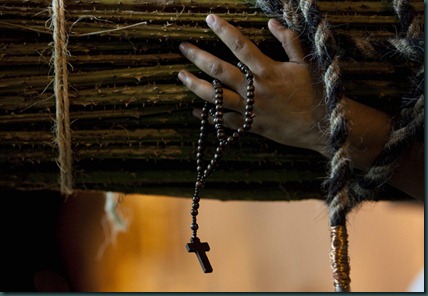
Gain perspective. Trust God. Rely more on community, on generosity. Develop deeper understandings. Be present, simply present. Pray about this!
Excerpt from the article, A Crisis of Prosperity: Could Small Again Be Beautiful? by Father Richard Rohr (accessed March 20, 2012). AP Photo of a penitent man bearing a cross made of a cactus, by Gregory Boyle, accessed HERE
Monday, March 26, 2012
A Good Rule
I had just finished college. Just before starting my first job, I had made an appointment with the eye doctor. While waiting in his waiting room, I picked up a Life Magazine to read it. There was a spread in the magazine about a nun in India. Her name was Mother Teresa. The interview contained this quote. It was not separated out from anything else she said, but it struck me so much that I wrote it down and then memorized it:
“Do your work as if everything depends on it.
And then leave the rest to God.”
Daily, that seems to put things in perspective for me. I hope you find it inspiring, as well.
Sunday, March 25, 2012
Forgiveness (a poem by Ann Weems)
arrogantly
self righteously
I didn’t understand.
I didn’t see your pain.
that you’re the one
to bring the flowers?
Saturday, March 24, 2012
Choose Life! (Reflections on Deuteronomy 30:19)
Choosing life is much broader, however, than such a narrow construction of the word “life” might imply. Consider, as just one example of “choosing life,” the words of Deuteronomy Chapter 30:
Friday, March 23, 2012
Our Perpetual Duty
Leviticus 25:23-24
Vincent Van Gogh, Die Ernte (in Provence), 1888, National Museum of Amsterdam
A few weeks ago, guest blogger Kienan Mick made a few observations regarding the relation between capitalism and sustainability (HERE). Among other things, he pointed out that the economic cost of anything needs to include its cost over the long haul, for future generations. A calculation of value that fails to include this cost does not reflect the true cost of a practice. Writer Haruki Murakami (HERE) similarly pointed out that it is a moral error for a society to pursue “efficiency” without regard to more fundamental values that guide our choices about how we want to live and what we want to stand for. He points out that what is “right” is not always what is expedient or efficient. In fact, to do the right thing may sometimes be downright unattractive.
Thursday, March 22, 2012
The Feast of Justice (The Fast of Isaiah 58, Part V)
Wednesday, March 21, 2012
Update on Ryan Boyette, Sudan, and Nuba Mountains
This blog post is an update.
Tuesday, March 20, 2012
The Bounty of Forgiveness (The Fast of Isaiah 58, Part IV)
Today, I’d like to point to a real-life story of how this has worked in the lives of two specific, modern people, Peter Woolf and Will Riley.
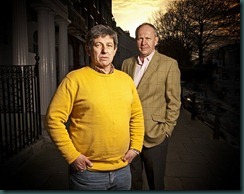
Monday, March 19, 2012
The Fast of the Righteous (The Fast of Isaiah 58, Part III)
him to do (okay, injecting some imagination here, but bear with me). I
Sunday, March 18, 2012
Acceptance of Grace (The Fast of Isaiah 58, Part II)
A few days ago, I quoted Isaiah Chapter 58 as suggesting the proper attitude for our fasting during Lent.* That chapter contrasts fasting with an improper attitude, which God hates, with the proper attitude that one should have for a fast. Strikingly, the activities mentioned as illustrating proper attitude toward the fast (share food with the hungry, provide shelter for the homeless, clothe the naked) have nothing to do with our own consumption of food.
Saturday, March 17, 2012
Prayer of Thanksgiving
Peace At the Altar
Given that there are many possibilities about what it means to approach an altar and make an offering, I think it's worth having a discussion about what, exactly, we are doing when we examine ourselves and seek atonement during the Lenten season.
Friday, March 16, 2012
“But Lord, Why Me?”
“God Appears to Moses in Burning Bush,” St. Isaacs Cathedral, St. Petersburg, courtesy Wikimedia Commons
Have you ever felt called or inspired to do something, but worried that you were not quite up to the job? If so, this post is for you.
Wednesday, March 14, 2012
A Lesson from Fukushima
Tuesday, March 13, 2012
The Link Between Forgiveness and Peace
Monday, March 12, 2012
Pray for Peace
Today, on the 20th day of Lent, I read from Pope John Paul’s speech on the occasion of the World Day of Peace, January 1, 2002:
Sunday, March 11, 2012
Fasting for Lent (The Fast of Isaiah 58, Part I)
Saturday, March 10, 2012
Justice and Peace Shall Kiss
Friday, March 9, 2012
The Most Powerful Weapon
Dr. King: “Very definitely. Very definitely. I feel that organized nonviolence is the most powerful weapon that oppressed people can use in breaking loose from the bondage of oppression.”
Thursday, March 8, 2012
Women’s Reproductive Rights
Wednesday, March 7, 2012
The Wind
| Photo courtesy NOAA |
Tuesday, March 6, 2012
Listening to God
In matters of faith, only one voice matters. How will we discern that voice?
Psalm 46 says: “Be still and know that I am God.”
Be still.
We modern folk are such poor listeners. We label each other, we talk past each other, we judge each other, we jump to conclusions, we stop listening.
We want to be heard, we want everyone else to listen to us, we talk to whomever will listen.
Stop.
Listen.
No, really, I mean it! Stop talking (mentally even) and … just …
Listen.
This song (linked below) reminds us just to take it in, and to give it back. Not to tell others or to tell God how it is or what we want, sometimes not even to tell God what we need.
Sometimes, we are just to
Listen
And, if we respond, our response is to “lift a hymn of grateful praise.”
Nothing more, nothing less.
In thought, word, and deed, let us praise our God. As it is said in Psalm 19:14:
Monday, March 5, 2012
Plastics In Our Oceans
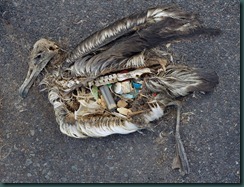
Sunday, March 4, 2012
Ocean Acidification
It reminds us that even though the earth seems limitless, it is not.
It is like a boat, and we all share it.
Or, it’s like a terrarium or, it’s like a fish tank. I personally am hooked on the fish tank analogy because of an experience I had first as a child and then as an adult, both involving fish tanks.
Saturday, March 3, 2012
Smack Down the Hate and Fear Drivers in Politics
Hear what Michael Higgins, President of Ireland, has to say in response to those whose allegiance is to power rather than to truth, people who incite fear rather than faith. He specifically names Sarah Palin, but I can think of more. Can you?
What can we do about this? Let’s just say that democracy, if it is to work, depends on participation by all its citizens, not just on their voting once in awhile. When was the last time you participated in selection of a candidate for inclusion of their name on the ballot? When was the last time you made a comment on pending legislation?
The last time I went to a precinct meeting of a polical party, one other person and I sat on a park bench and talked. That's not how it should be! Democracy is not a TV, spectator sport! Those people appearing on TV were placed there by the people attending those precinct meetings!
If you and I are not participating in the game -- if the moral middle has opted out of the system for whatever reason -- then we shouldn’t be surprised when the debate is controlled by the wingnuts! The sad thing is, if we don't participate, we are dooming our democracy to death by starvation.
Whose Earth?
"The earth is the Lord's and the fullness thereof." Psalms 24:1
(Photo by Mark Schmerling)
“The land is mine and you are but aliens and my tenants. Throughout the country that you hold as a possession, you must provide for the redemption of the land.” Lev. 25:23-24.
Q: What can we do about this?
A: Turn off some light bulbs
(and take other actions to conserve energy)
B: Support the use of alternate, sustainable sources of fuel
Thursday, March 1, 2012
The Girl Effect Fact Sheet
Something is not right in the world, is it? Generally speaking, if one wants things to change, one must figure out what to change. This leads to
THE GIRL EFFECT
As women have gained power and influence in the world, societies have changed. This has begun to be noticed. In general, sociologists began to notice, the higher the status of women in a society, the higher its overall statistics. Across the board. Life expectancy, health, education, etc. Why?
THE GIRL EFFECT
Learn about it! I quote now straight from the Fact Sheet at http://www.girleffect.org/uploads/documents/1/Girl_Effect_Fact_Sheet.pdf as follows:
Little research has been done to understand how investments in girls impact economic growth and the health and well-being of communities. This lack of data reveals how pervasively girls have been overlooked. For millions of girls across the developing world, there are no systems to record their birth, their citizenship, or even their identity. However, the existing research suggests their impact can reach much further than expected.
THE RIPPLE EFFECT
When a girl in the developing world receives seven or more years of education, she marries four years later and has 2.2 fewer children. (United Nations Population Fund, State of World Population 1990.)
An extra year of primary school boosts girls’ eventual wages by 10 to 20 percent. An extra year of secondary school: 15 to 25 percent. (George Psacharopoulos and Harry Anthony Patrinos, “Returns to Investment in Education: A Further Update,” Policy Research Working Paper 2881[Washington, D.C.: World Bank, 2002].)
Research in developing countries has shown a consistent relationship between better infant and child health and higher levels of schooling among mothers. (George T. Bicego and J. Ties Boerma, “Maternal Education and Child Survival: A Comparative Study of Survey Data from 17 Countries,” Social Science and Medicine 36 (9) [May 1993]: 1207–27.)
When women and girls earn income, they reinvest 90 percent of it into their families, as compared to only 30 to 40 percent for a man. (Chris Fortson, “Women’s Rights Vital for Developing World,” Yale News Daily 2003.)
Population Trends
Today, more than 600 million girls live in the developing world. (Population Reference Bureau, DataFinder database, http://www.prb.org/datafinder.aspx [accessed December 20, 2007].)
More than one-quarter of the population in Asia, Latin America, the Caribbean, and sub-Saharan Africa are girls and young women ages 10 to 24. (United Nations Department of Economic and Social Affairs, “World Population Prospects: The 2006 Revision,” http://esa.un.org/unpp, and “World Urbanization Prospects: The 2005 Revision,” www.un.org/esa/population/publications/WUP2005/2005WUP_DataTables1.pdf.)
The total global population of girls ages 10 to 24 — already the largest in history — is expected to peak in the next decade. (Ruth Levine et al., Girls Count: A Global Investment & Action Agenda [Washington, D.C.: Center for Global Development, 2008].)
Educational Gaps
Approximately one-quarter of girls in developing countries are not in school. (Cynthia B. Lloyd, ed., Growing Up Global: The Changing Transitions to Adulthood in Developing Countries [Washington, D.C.: National Academies Press, 2005].)
Out of the world’s 130 million out-of-school youth, 70 percent are girls. (Human Rights Watch, “Promises Broken: An Assessment of Children’s Rights on the 10th Anniversary of the Convention on the Rights of the Child,” www.hrw.org/campaigns/crp/promises/education.html [December 1999].)
THINK ABOUT IT
http://www.girleffect.org/uploads/documents/1/Girl_Effect_Fact_Sheet.pdf
Wednesday, February 29, 2012
Why Empower Girls?
DID YOU KNOW …
- 70 % of the world’s poorest billion people are women and girls
- In some countries a woman is more likely to die in childbirth than get an education
- Two thirds of people who cannot read or write are women
(Source Care, International accessed 21 February 2012)
HOW TO FIX IT?
THE GIRL EFFECT.
Watch this two minute video, you’ll get the idea:
Interested in learning more? Read this Position paper by Care, International
Tuesday, February 28, 2012
My Battle With the Light Bulb
When enough of us act in small ways, we link into big picture items, like mountaintop removal mining or tar sands mining. Just a few days ago, I blogged on justice issues arising from these types of mining activities, which are directly linked to our consumption of energy.
- Let's put our electric usage into perspective: Listening to a talk radio show last year, I learned that electricity for just one item in the USA -- air conditioning -- uses more electricity than all the power usage on the continent of Africa combined. Think about that, Americans!
- If you are in North America and click the link HERE and input your zip code, you will probably be able to see that your own electricity use contributes directly to mountaintop removal mining. The burning of coal also contributes to acid rain and particulate air pollution.
Using less. It's the first among the three item mantra: "reduce, reuse, and recycle."
Monday, February 27, 2012
Do You Dare to Be An Extremist?

I agree with my friend on the value of reading this letter. I, too, find much to be absorbed and re-absorbed in it. I find myself re-reading it, and sometimes even (heaven forbid!) thinking about it when I’m not reading it!
Sunday, February 26, 2012
Satyagraha: Confronting Power With Truth In Sudan
The skinny is, you can support Ryan by making a contribution on Kickstarter.com.
Ryan is an ordinary American who grew up in Florida. He is also a Christian, and he went to Sudan as a relief worker for the Christian organization, Samaritan’s Purse. While working among the Nuba people, he met and married a Sudanese woman, who is pictured here with him.
Sudan is a large country, approximately the size of the eastern half of the USA.
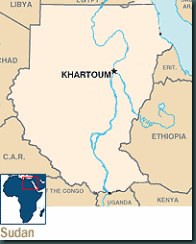
When the Colonial powers divided up Africa into distinct countries, they often did so without regard to traditional tribal boundaries. Sudan is an example. The northern part of Sudan is desert and is inhabited by light skinned, Muslim people of Arabic descent. The southern part of Sudan is green and inhabited by dark skinner, largely Christian people of traditional tribal descent. Underneath the fertile soil of the south, is oil. In a gross oversimplification, the northern, Arabic peoples gained control of the military and of government, and for twenty years conducted a campaign to remove the tribal people who were inconveniently (by virtue of living there) blocking unbridled access to the oil reserves underneath their traditional pastoral lands.
This was the context in which the genocide in Darfur took place. At its worst, this campaign of removal turned into a campaign of eradication, resulting in the extermination of the people of Darfur. According to U.N. sources, the genocide in Darfur has largely been accomplished.
The resource conflict also resulted in a 20 year civil war in Sudan between the north and the south. At the end of this 20 year “civil war,” a peace deal was brokered in which the Khartoum government allowed the people of South Sudan to declare independence by way of a referendum. In July of 2011, South Sudan became the world’s newest country, as its people voted to sever ties with the government of Khartoum. Unfortunately, woe to those dark skinned peoples of tribal descent who were sympathetic to (and supported) secession but who have the misfortune of now residing north of the line of demarcation.
Now that eradication of the tribal peoples in Darfur is fundamentally complete, the Khartoum government (by all appearances to outside observers) seems to have zeroed in on the dark skinned people remaining in the (northern) Sudanese state of Southern Kordofan state (just to the east of Darfur) as its next target for eradication. The Khartoum government’s enmity toward these peoples is also fueled by the fact that the the tribes in what is now Sudan’s southern border areas sought independence along with South Sudan, but were thwarted by political forces.
The first map, below, is divided into political names, but the second map is very illustrative.
Fundamentally, the areas on the second map that are marked in green, pink, and yellow, are inhabited by dark skinned, tribal and pastoral peoples. And these people have been marked for extermination by their own government.
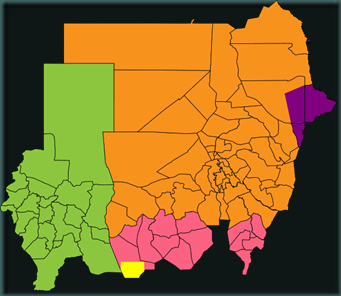
The dark skinned, tribal people have been mostly exterminated from the green areas of this map (Darfur). Now, the focus has moved to the yellow and pink portions: the states of Southern Kordofan, White Nile, and Blue Nile.
Among these inhabitants of South Kordofan, residing in the Nuba mountains, are the Nuba people.
Discussion of the Nuba people brings conversation back to the ordinary guy, Ryan Boyette, the relief worker. When the Khartoum government began its bombing of the Nuban people, Samaritan’s Purse evacuated its workers and told Ryan to get on a plane and leave.
Ryan refused, quitting his job instead so that he could stay behind. He explains that his conscience compelled him, instead, to bear witness to the facts.
Bearing witness is a fundamental component of justice, and of peace. The term Satyagraha , termed by Gandhi, describes the active force of truth and the power of applied loving-kindness, not as a passive means of resistance but as an active spiritual force that confronts evil. The truth is like a mirror, forcing evil to look itself in the face.
In Syria, in Egypt, at Occupy encampments, and elsewhere around the world, people bearing witness have cameras and cell phones, twitter and Facebook, to take photos and to communicate with the outside world, to bear witness to the truth. In Sudan, its infrastructure destroyed by 20 years of civil war, the people don’t have these ways of communicating with the outside world.
Ryan decided to change that.
He stayed behind and is equipping peace warriors with cameras and cell phones. With these, victims can now record what is happening and communicate this to the outside world. Thanks to Ryan, when a bomb falls on an elementary school or on a refugee camp, and the Sudanese government denies that it happened, cameras are now in place to record the event and prove to the world that yes, a bomb was indeed dropped on this school.
No one says that nonviolent direct action is easy or that it doesn’t have risks. Ryan, now the target of assassination attempts, is clearly putting his life in danger.
To accept donations, he has set up an account on Kickstarter.com.
Would you like to make a contribution to help the cause?
![coins_thumb[1] coins_thumb[1]](http://lh5.ggpht.com/-AgHwJFImMC0/T0sCE1baeEI/AAAAAAAAAgM/rbFksKTxOhA/coins_thumb%25255B1%25255D_thumb.jpg?imgmax=800)
The minimum donation on Kickstarter is One Dollar. I promised to give each day one action item people can do. Today, this is it.
And finally, with all that said, I’d also like to mention another peace worker who is making Ryan’s work possible. Thanks very much to New York Times writer Nicholas Kristoff for writing about this and bringing it to the world’s attention. Kristoff’s writing has given Ryan the attention he needs to help raise awareness of this issue.
See two of Nick Kristoff's articles: Battling Sudan’s Bombs With Videos (February 26, 2012) and The Man Who Stayed Behind (October 19, 2001)
If you’d like to learn even more, please read the links in this blog post, including: http://nyti.ms/zSKnNs and eyesandearsnuba.org
THANKS
An update to this blog post appears HERE
(Note: all photographs are in the public domain)
Saturday, February 25, 2012
Switch It Off! (Switch Off That Extra Light Bulb, I Mean!)
Because surface mining tends to occur in locations remote from densely populated areas, many of us have never witnessed first hand the environmental devastation which accompanies it. The ordinary person also may not be aware that surface mining itself has transformed radically with the advent of technology in the last 30 years. Surface mining is now occurring on a scale never before seen on the earth. It has become much more damaging environmentally than ever before.
(See, for example, this interactive satellite map, courtesy NASA, showing growth of Athabasca Oil Sands mine 1981-2011: http://1.usa.gov/yF7GMP (notice that each unit is 4 kilometers!).)
In central Appalachia, mountaintop removal mining (in which an entire mountain is blasted to expose the coal underneath) has become the dominant driver of regional land-use change. I have blogged in other posts about the effects on people and wildlife. People are driven off their ancestral lands, economic independenceand diversity is lost as communities become dependent upon one, powerful employer, streams clog up from sedimentation, chemicals pollute the waters and air, and children develop asthma. Because of imbalance of power related to economics, local communities profoundly affected by these mountaintop removal mining have found themselves powerless to stop the devastation to their health, economy, and way of life.
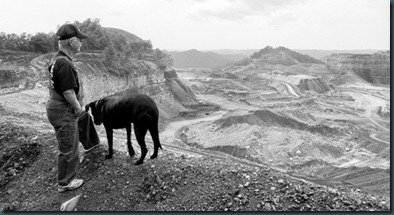
Photo by Mark Schmerling,
I hope I’ve written enough to alert you to the issue. But, what to do about it?
Start with your light switch!
As Shirley Burns writes in her article, “Mountaintop Removal in Southern Appalachia,”
It is easy for the rest of the country to flip on their light switches and never think where the energy is coming from. More than half of all US electricity comes from coal. It's the nation's dirty little secret. Even filthier is what is done to the land to get the coal. People talk passionately about clean coal technology, but this discussion revolves around whether it's possible to clean the burning of the coal. Overlooked in the "Clean Coal" dialogue is the extraction of coal through mountaintop removal. This process is inherently filthy, and it can never be clean! Along with the incessant dust and danger from blasting apart a mountain, the processing of this coal results in huge coal slurry impoundments that hold billions of gallons of toxic sludge, which contains concentrated toxic substances such as selenium, cadmium, boron, arsenic and nickel. In addition to the knowledge that these dams can break (as one did in Buffalo Creek, West Virginia, in 1972, killing 125 people and, more recently, in October 2000 in Martin County, Kentucky, polluting more than 75 miles of stream from Kentucky to West Virginia) is the fear that they are contaminating underground aquifers. The valley fills that are created with the refuse of the blasted apart mountains bury hundreds of miles of streams that feed the waters of the eastern United States.Half of all U.S. electricity comes from coal. That means, when you use electricity, you are using COAL.
Dirty coal.
As long as the nation is gulping down coal like a famished beggar, our politicians will lack the political will to rein in the coal companies to alter the power balance back in favor of environmental regulations designed to protect people and communities affected by coal extraction, and all of us who reside downstream in the figurative sense.
So, please, ask yourself:
Here are some ideas. Can you add to the list? Please DO leave a comment below to add to this list!
- Aim to use no more than one light per person in the house, at a time. (How many bulbs are burning where you are, right now?)
- Ventilate with outside air rather than motor driven ventilation.
- If you use heat or air conditioning, dress for the weather so that you can moderate your use of the thermostat.
- Put your hot water heater on a timer.
- Lower the temperature settings on your hot water heater.
- Use electric strips that can be shut off for all electrical items in your house.
- Unplug all electronics and battery chargers when not in use. These sap electricity at all times.
- Bake less often and stir fry more often (as this uses less energy)
- Use energy efficient light bulbs
- Please, leave a comment to add to this list!
Friday, February 24, 2012
Ethics and Property Rights In Tar Sands and Mountaintop Mining
Both tar sands mining and mountain top removal in the Appalachian mountains raise ethical issues related to the very idea of land “ownership”.
Both forms of mining are what is known a surface mining. Instead of digging subterranean tunnels underground to access material, the earth is scraped away to the level of the mineral deposits. There has been a worldwide increase in surface mining in the last 30 years. Mountaintop removal mining has become the “dominant driver of land-use change in the central Appalachian ecoregion of the United States.” A description is the practice is as follows: “Upper elevation forests are cleared and stripped of topsoil, and explosives are used to break up rocks to access buried coal (fig. S1). Excess rock (mine “spoil”) is pushed into adjacent valleys, where it buries existing streams.” Palmer, et al. “Mountaintop Mining Consequences,” Science January 2010 (accessed 2/25/12).
Mountaintop removal mining removes all layers of topsoil, shoving them into streambeds. What is left after extinguishment of mining operations is rock and pulverized stone. Additionally, the pH of the remaining land is altered so that it is inhospitable to plant life. In effect, mountaintop removal mining permanently and forever renders what is left of the mountain incapable of further productive use, for all future generations.
The Western idea of land ownership, where one party has exclusive rights to use of land and may prevent others from any use of it, is not universal. However, even in the Western model of land ownership, there has also been an unstated but implicit understanding that that right of exclusion is not permanent. For instance, the rule against perpetuities prevents a landowner from tying up property for “perpetuity.” It expressly states that no interest in land is valid if it may not vest within the span of a life in being plus 21 years. Thus, historically and in general, while uses of land might encumber that land for more than a single generation, it has been an implicit policy that a landowner does not have a right to encumber land for all time forward.
Can this, in turn, be used to assert that no land owner has a property right to turn land into an unusable wasteland for all time, forever, going forward? What ethical principles apply, or should apply, to inform legal standards of use for property ownerships?
Please leave a comment, below.
Photograph of mountaintop mine by J.W. Randolph, Courtesy Wikimedia Commons
Thursday, February 23, 2012
Guest Blogger Economist KIENAN MICK, on Capitalism and the Value of Sustainability
Capitalism knows the price of everything but the value of nothing. Capitalism ignores the fact that, regardless of the self-bestowed entitlements to the fruits of our “hard work,” everything we have or create is, ultimately, dependent on the freely given gifts of clean air, rain, and soil.
It should be obvious that the natural resources of the earth -- the minerals, the metals, the fuels -- must all be preserved in perpetuity for future generations until the day when God rescinds the payment. These natural gifts are not free. While we may not make a monetary payment for every breath of air we breathe, or every drop of rain that falls, it is essential that we acknowledge the cost of preserving these essential gifts.
But capitalism ignores all of this. The ultimate manifestation of greed and selfishness is the generation that only puts prices on its own borrowed time, ignoring the costs to future generations. Polluting a river today because the cost of cleanup is “too high” should not be praised as part of the “entrepreneurial spirit.” Poisoning the earth today for profits should not be considered a side effect of “innovation.” Pumping toxic chemicals into the air should not be acceptable in the pursuit of “growth.”
“Give a man a fish and you feed him for a day. Teach a man to fish and you feed him for a lifetime.” – Chinese Proverb
Another mantra of capitalism is self-sufficiency. But any wisdom found in this quote is lost by the true nature of capitalism, which is to consume today at the expense of tomorrow. How can one be self-sufficient if there is nothing to subsist on?
If the river is polluted and kills all the fish, then what? If the river is dammed off, destroying the habitat if the fish, then what? If the river is overfished and there are no fish left, then what? Teaching the man to fish is a noble sentiment, but in order for it to benefit the man there must be insurance that he will always be able to fish from the river. There must be sustainability.
Perhaps capitalism is not about hard work. Perhaps it is really about laziness. Future generations are expected to not only face an earth with depleted resources, but to clean up the mess left behind by the last generation who were too selfish and greedy to think about them.
Instead of blindly extolling the virtues of capitalism, perhaps we should ask; is capitalism and its corresponding emphasis on consumption sustainable? Or is it just a shoddy excuse for selfishness and greed to satisfy the wants of today at the expense of the lives of tomorrow?
_-_The_Damned_Being_Cast_into_Hell_-_WGA08202.jpg)








